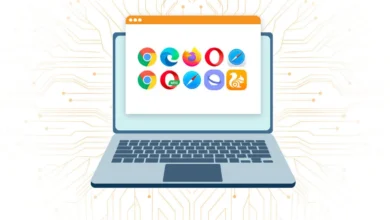еводчик: Bridging Language Divides

In a world that is increasingly interconnected, the ability to communicate across language barriers is more vital than ever. “еводчик,” the art and science of translating and interpreting, plays a crucial role in facilitating communication between people of different linguistic backgrounds. This article delves into the realm of “еводчик,” exploring its significance, various types, required skills, challenges, and the path to success in this field.
What is “еводчик”?
“еводчик,” pronounced as “yevodchik” in English, encompasses both translation and interpretation. It involves the conversion of written text or spoken words from one language into another while maintaining the original meaning, tone, and context. The term “еводчик” has its roots in Russian, where it signifies the act of guiding or leading through language.
The Importance of “еводчик”
Cultural Significance
“еводчик” serves as a bridge between cultures, allowing ideas, literature, and information to transcend linguistic boundaries. It enables the exchange of knowledge, fosters understanding, and promotes intercultural dialogue.
Practical Applications
From diplomatic negotiations and business meetings to literature translation and medical interpretation, “еводчик” is indispensable in various domains. It facilitates communication in legal proceedings, healthcare settings, academic conferences, and international events, contributing to global cooperation and collaboration.
Different Types of “еводчик”
“еводчик” encompasses a diverse range of tasks and specialties, each requiring unique skills and expertise.
Written Translation
Written translation involves rendering written documents such as books, articles, legal contracts, and technical manuals from one language into another. Translators must possess excellent language proficiency, research skills, and attention to detail to convey the original message accurately.
Oral Interpretation
Oral interpretation, also known as simultaneous or consecutive interpreting, involves translating spoken language in real-time. Interpreters must possess exceptional listening, comprehension, and memory skills to convey messages accurately and efficiently.
Specialized Fields
“еводчик” extends into specialized fields such as legal, medical, technical, and literary translation. Translators and interpreters in these fields require not only linguistic skills but also subject matter expertise to accurately convey specialized terminology and concepts.
Skills Required for “еводчик”
Becoming proficient in “еводчик” requires a combination of linguistic prowess, cultural understanding, and domain-specific knowledge.
Language Proficiency
Translators and interpreters must be fluent in at least two languages, with a deep understanding of grammar, vocabulary, and syntax in both languages. They must also stay updated on language trends and nuances to ensure accurate communication.
Cultural Understanding
Understanding cultural nuances and context is essential for effective communication. Translators and interpreters must be sensitive to cultural differences in language use, gestures, and social norms to avoid misunderstandings or offense.
Subject Matter Expertise
In specialized fields such as law, medicine, or engineering, translators and interpreters need to possess in-depth knowledge of the subject matter. This includes familiarity with industry-specific terminology, regulations, and conventions.
Challenges Faced by “еводчик”
Despite its importance, “еводчик” comes with its own set of challenges that practitioners must navigate.
Linguistic Nuances
Languages are complex systems with nuances, idioms, and cultural references that may not have direct equivalents in other languages. Translators often grapple with finding the right words to convey subtle meanings and nuances accurately.
Time Constraints
In time-sensitive situations such as conferences or court hearings, interpreters must work under pressure to convey messages accurately and swiftly. Tight deadlines in translation projects also require translators to balance speed with accuracy.
Ethical Considerations
Translators and interpreters often encounter ethical dilemmas, such as maintaining confidentiality, preserving impartiality, and accurately representing the speaker’s intentions. They must navigate these ethical considerations while upholding professional standards.
How to Become a Successful “еводчик”
Achieving success in the field of “еводчик” requires dedication, training, and ongoing professional development.
Education and Training
Obtaining a degree or certification in translation or interpretation provides a solid foundation in linguistic theory, translation techniques, and ethical standards. Specialized training programs and workshops offer opportunities to hone skills and gain practical experience.
Building Experience
Practical experience is invaluable for aspiring translators and interpreters. Internships, volunteer work, and freelance projects help build a portfolio and establish a reputation in the industry.
Networking
Networking with fellow professionals, language agencies, and potential clients is essential for career advancement. Attending conferences, joining professional associations, and participating in online forums provide opportunities to connect with colleagues and stay updated on industry trends.
Famous “еводчик” Throughout History
Throughout history, numerous translators and interpreters have left a lasting impact on language, literature, and diplomacy.
Notable Figures
From ancient scholars like St. Jerome, who translated the Bible into Latin, to modern-day polyglots like Louise and Richard Tillinghast, who specialized in Japanese literature, translators and interpreters have played a pivotal role in shaping cross-cultural communication.
Their Contributions
These pioneers have expanded linguistic horizons, preserved literary treasures, and facilitated dialogue between nations. Their contributions continue to inspire aspiring translators and interpreters around the world.
The Future of “еводчик”
As technology continues to advance, the landscape of “еводчик” is evolving rapidly.
Technological Advancements
Machine translation tools and artificial intelligence are transforming the way translations are conducted. While these technologies offer speed and efficiency, they cannot replicate the human touch and nuanced understanding that human translators provide.
Impact on the Profession
The rise of machine translation raises questions about the future role of human translators and interpreters. While automation may streamline certain tasks, human expertise remains essential for handling complex texts, understanding cultural nuances, and ensuring accuracy.
Conclusion
“еводчик” is more than just a linguistic profession—it is a bridge that connects people, cultures, and ideas across the globe. As the world becomes increasingly interconnected, the demand for skilled translators and interpreters will continue to grow. By honing their language skills, cultural understanding, and subject matter expertise, aspiring “еводчик” can embark on a rewarding journey of facilitating communication and fostering understanding in an ever-changing world.
FAQs About “еводчик”
- What is the difference between a translator and an interpreter?
- Translators work with written text, while interpreters work with spoken language in real-time.
- How do you handle translating idiomatic expressions?
- Translating idioms requires understanding the cultural context and finding equivalent expressions in the target language.
- Is machine translation replacing human translators?
- While machine translation tools are becoming more sophisticated, human translators provide nuanced understanding and cultural sensitivity that machines cannot replicate.
- Can anyone become a translator or interpreter?
- While language proficiency is essential, becoming a successful translator or interpreter also requires cultural understanding, subject matter expertise, and continuous learning.
- What are the ethical responsibilities of a translator or interpreter?
- Ethical responsibilities include maintaining confidentiality, preserving impartiality, and accurately representing the speaker’s intentions while adhering to professional standards.





